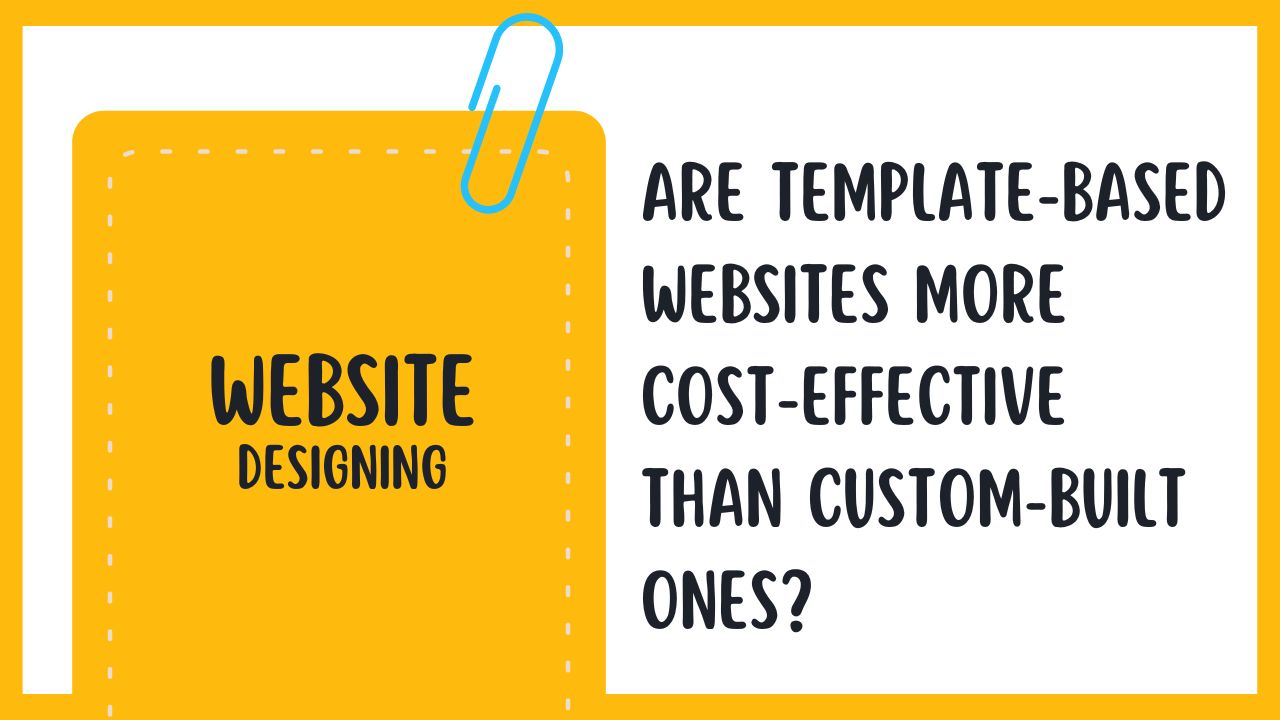Many businesses face a common dilemma when it comes to building a website: whether to opt for a template-based design or invest in a custom-built one. In this blog post, we will investigate into the key factors to consider when deciding between template-based websites and custom-built ones, with a specific focus on cost-effectiveness. By exploring the advantages and drawbacks of each option, we aim to provide valuable insights to help you make an informed decision that aligns with your budget and business goals.
Key Takeaways:
- Cost-effectiveness: Template-based websites are generally more cost-effective than custom-built ones as they require less time and effort to set up and maintain.
- Time-saving: Using templates can save a significant amount of time as they come with pre-designed layouts and features, reducing the need for extensive customization.
- Flexibility vs. customization: While template-based websites offer less customization options, they provide flexibility in terms of design and functionality, making them suitable for many businesses with basic needs.
Understanding Template-based Websites
Definition and Characteristics
Some businesses choose template-based websites as a cost-effective solution for establishing their online presence. These websites are pre-designed and pre-coded, allowing for easy customization with content and branding elements.
Pros and Cons of Template-based Solutions
With template-based websites, there are several advantages and disadvantages to consider:
| Pros | Cons |
| Cost-effective | Limited customization |
| Quick setup | Potential lack of uniqueness |
| Responsive design | Restrictions on functionality |
| User-friendly interfaces | Risk of looking generic |
The decision to opt for a template-based website should be carefully considered, weighing the benefits of cost and speed against the limitations in customization and uniqueness. However, for businesses with limited resources or time constraints, these solutions can still deliver a professional online presence.
Exploring Custom-built Websites
The Custom Website Development Process
Custom website development is a meticulous process that involves creating a website from scratch to meet specific business requirements. Each stage, from gathering requirements to design, development, testing, and deployment, is tailored to ensure the website aligns with the client’s branding, functionality, and user experience goals. This level of customization demands a high degree of expertise and attention to detail.
Advantages and Challenges of Customization
With custom-built websites, businesses have the advantage of complete control over the website’s design, features, and functionality. This allows for a unique online presence that can effectively represent the brand and engage users. However, this level of customization comes with challenges such as longer development timelines, higher costs, and the need for ongoing maintenance and updates to keep the website optimized and secure.
Cost Analysis
Comparative Costs of Template-based vs. Custom-built Websites
Comparative costs of template-based vs. custom-built websites can vary significantly. Here is a breakdown of the key cost factors to consider:
| Cost Factor | Template-based |
| Initial Development | Lower upfront costs due to ready-made templates |
| Customization | Limited customization options without incurring additional costs |
| Maintenance | Lower maintenance costs, but limited flexibility for future updates |
Long-term Financial Implications
An analysis of the long-term financial implications of template-based vs. custom-built websites is crucial for making an informed decision. With a template-based website, you may save on initial development costs but could incur higher expenses in the long run.
Making the Right Choice
Assessing Your Business Needs
Business owners need to carefully assess their business needs before choosing between a template-based or custom-built website. Factors such as the size of the business, industry requirements, target audience, and long-term goals should all be taken into consideration. Understanding these needs will help in determining the most suitable website solution that aligns with the business objectives.
Balancing Quality, Functionality, and Budget
When making the decision between template-based and custom-built websites, businesses must find a balance between quality, functionality, and budget. While custom-built websites offer tailored solutions and unique features, they come with a higher price tag. On the other hand, template-based websites are cost-effective and quick to set up, but may lack customization options. It’s crucial to evaluate these factors and prioritize which aspects are most important for the business’s online presence.
Making informed decisions based on a thorough assessment of business needs and careful consideration of quality, functionality, and budget will ultimately lead to choosing the right website solution for your business. By aligning your website choice with your business objectives, you can create a successful online platform that effectively represents your brand and engages your target audience.
Conclusion
The debate between template-based websites and custom-built ones ultimately comes down to the specific needs and goals of each individual or business. Although template-based websites may offer a more cost-effective solution initially, custom-built websites provide a tailored and unique online presence that can better reflect the brand identity and cater to specific requirements. Custom-built websites also offer more flexibility for future growth and customization. When considering the long-term benefits and ROI, investing in a custom-built website may be more advantageous for those looking to stand out in a crowded online market and create a truly impactful digital presence.

